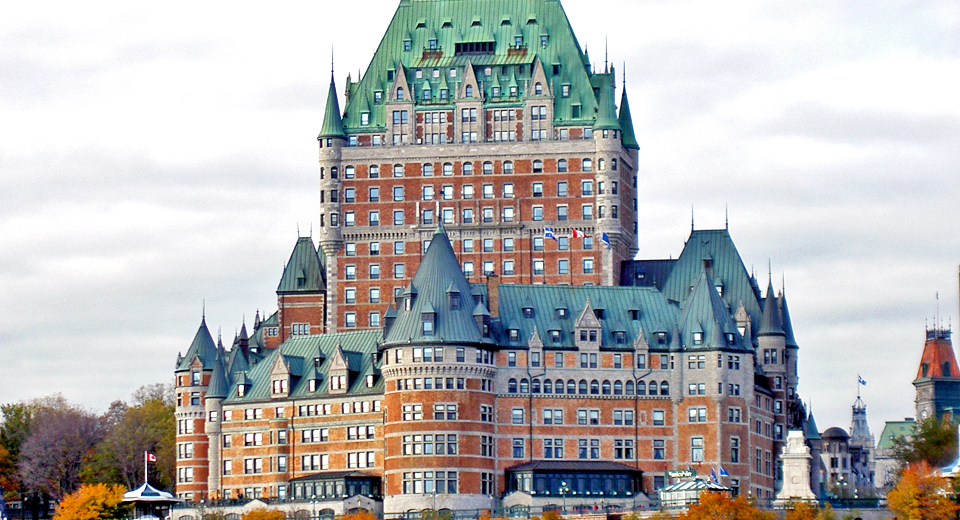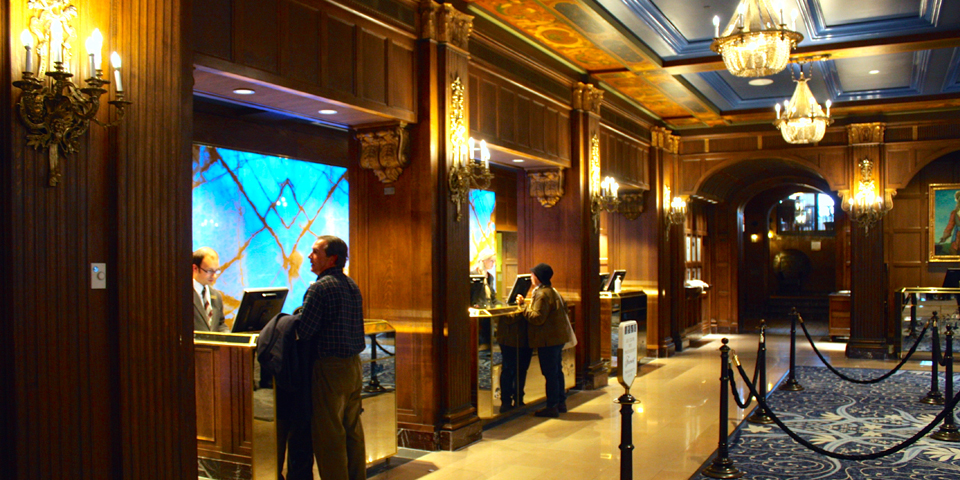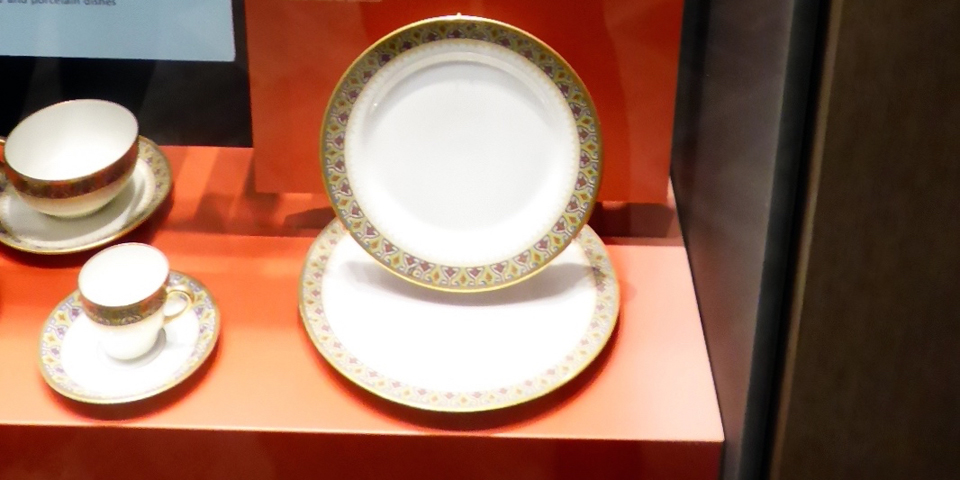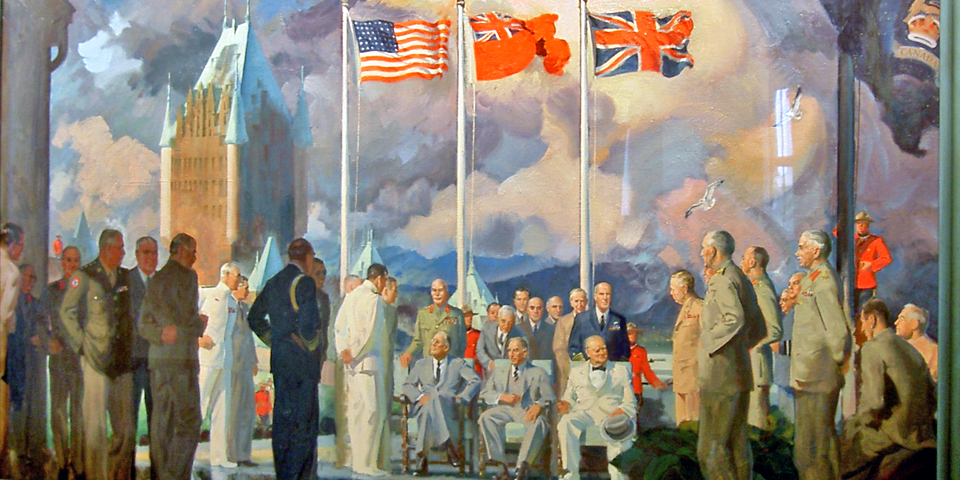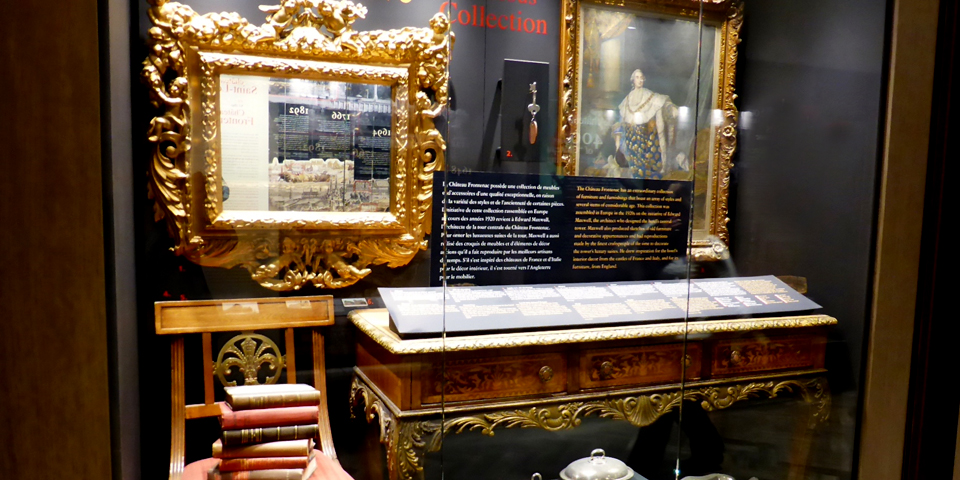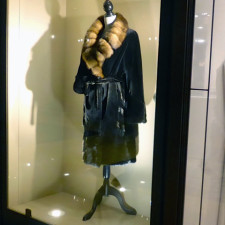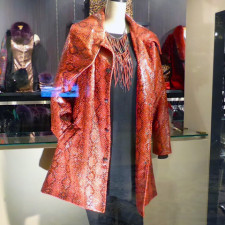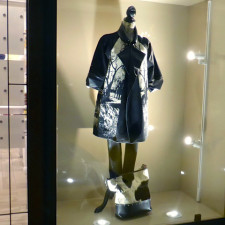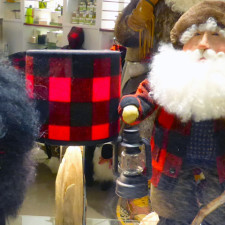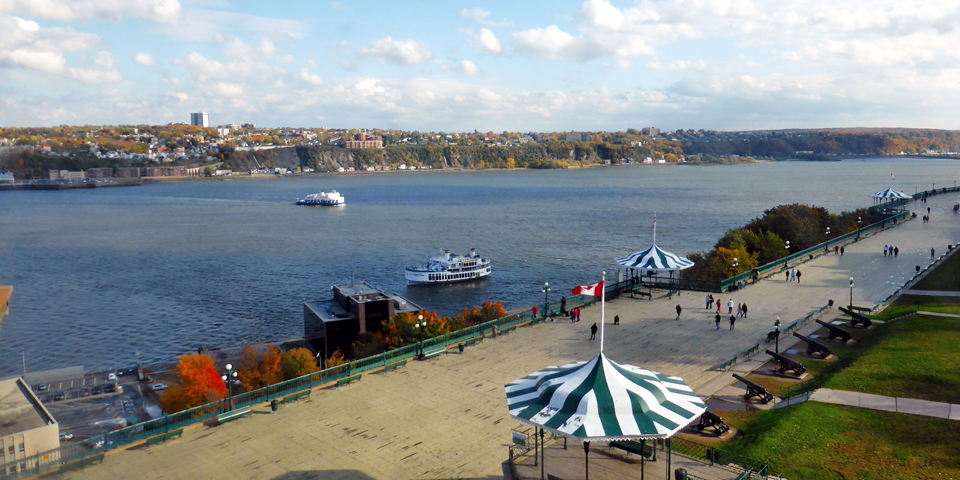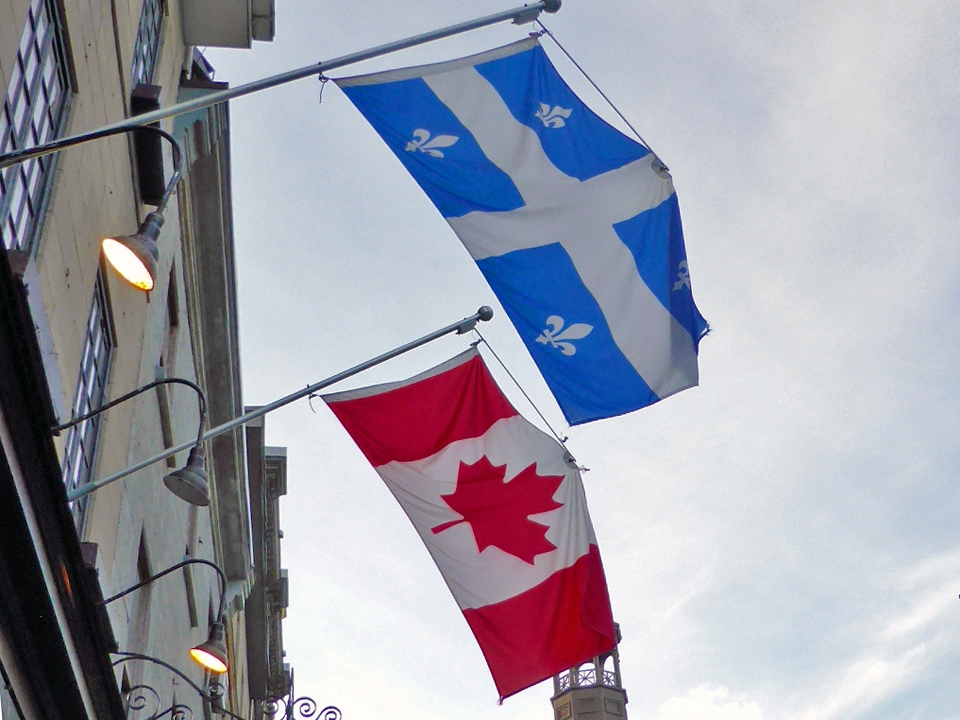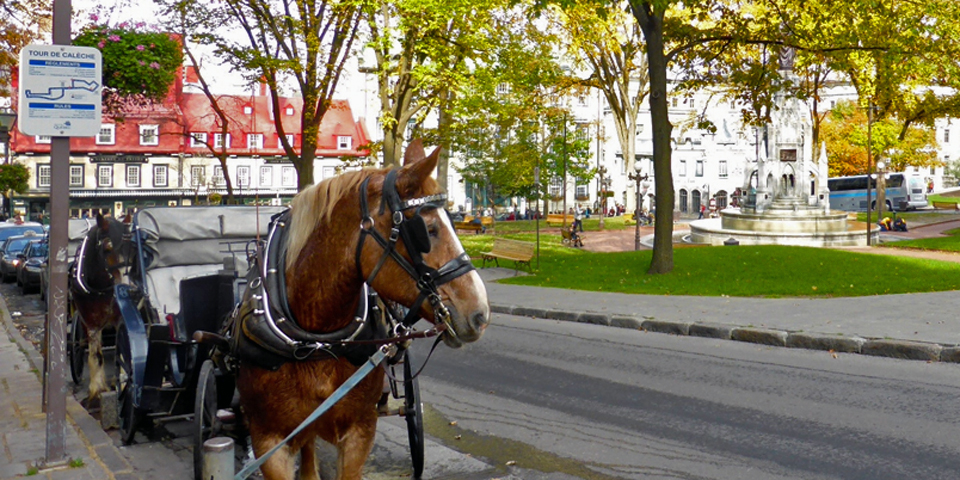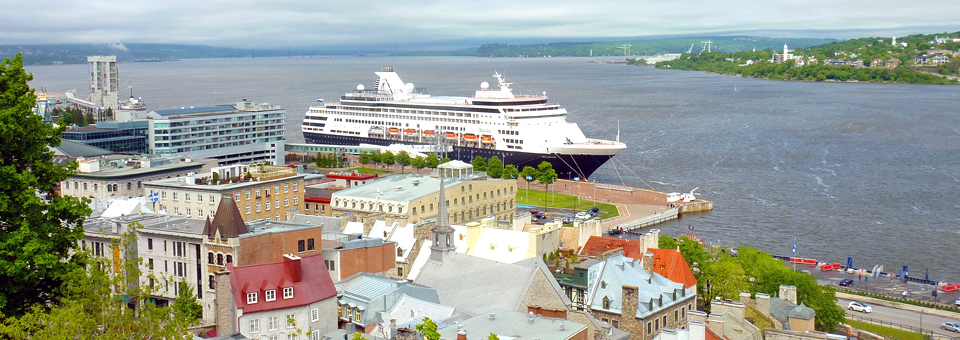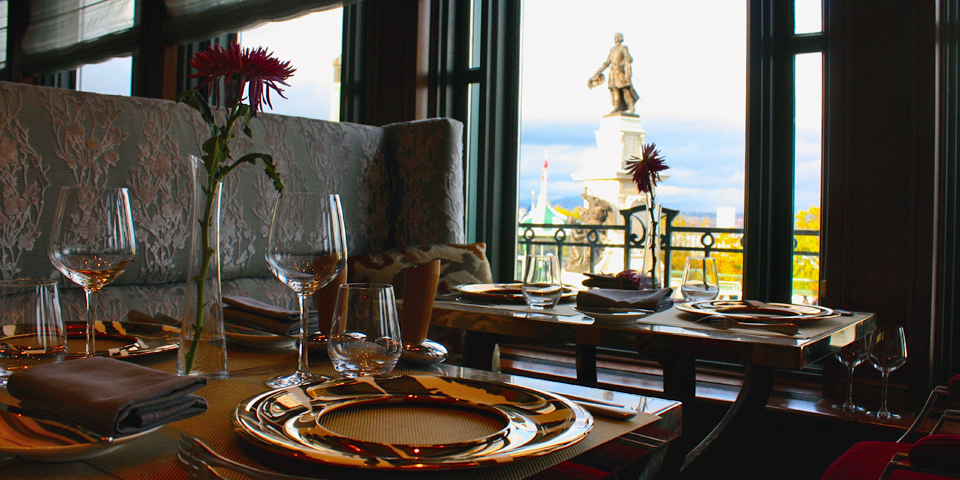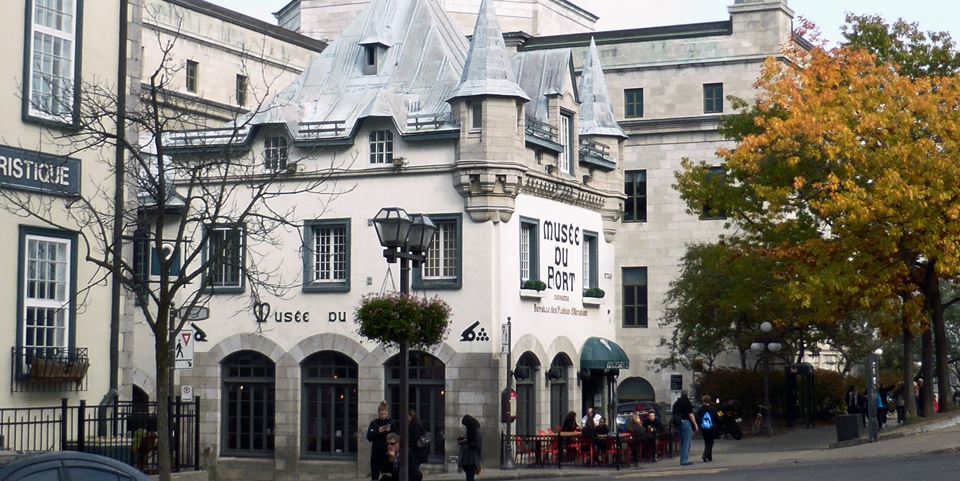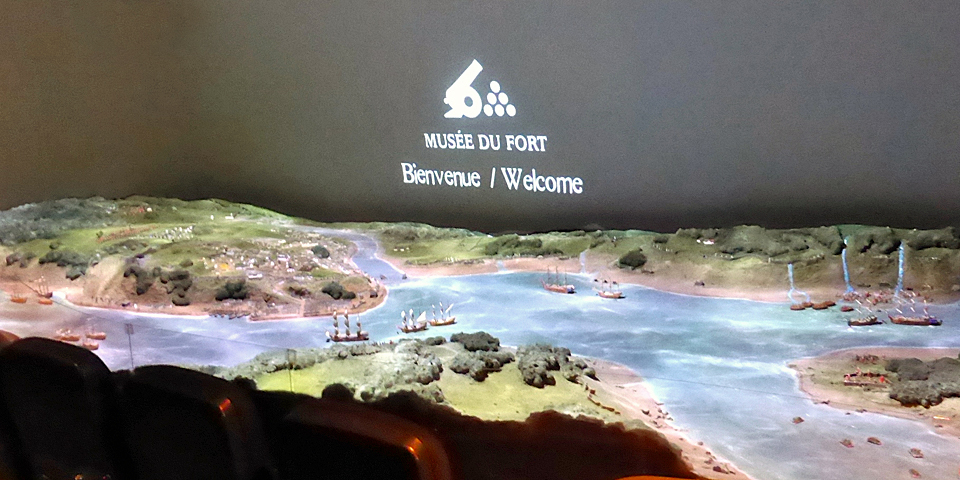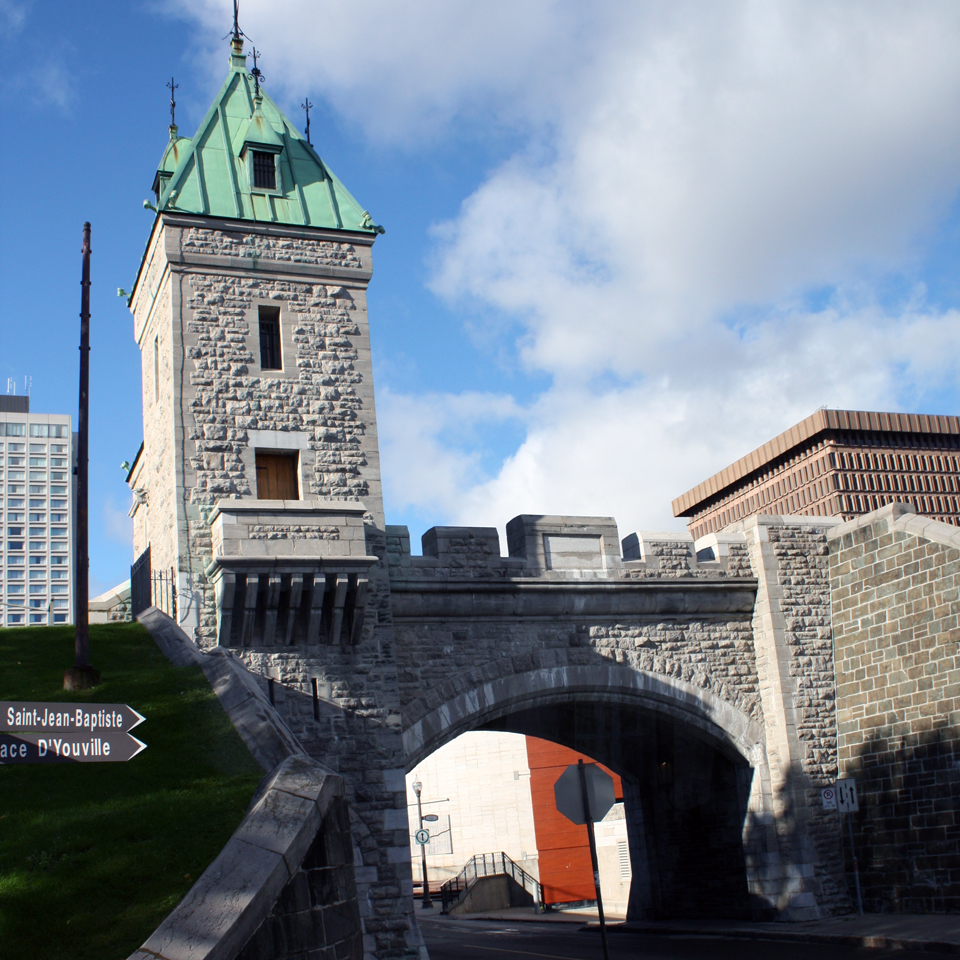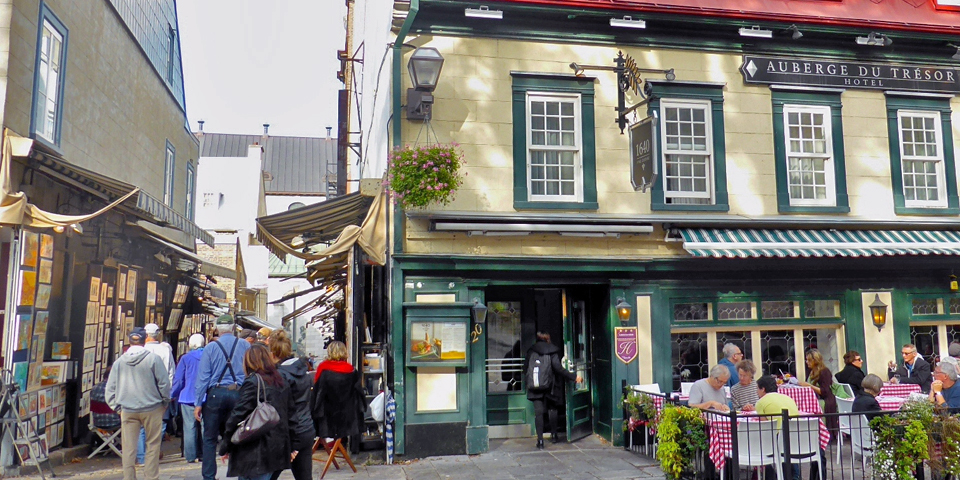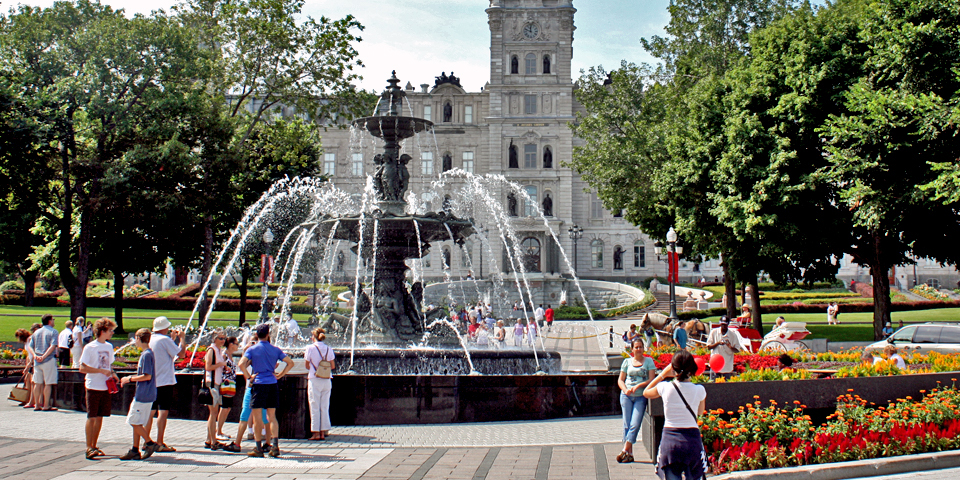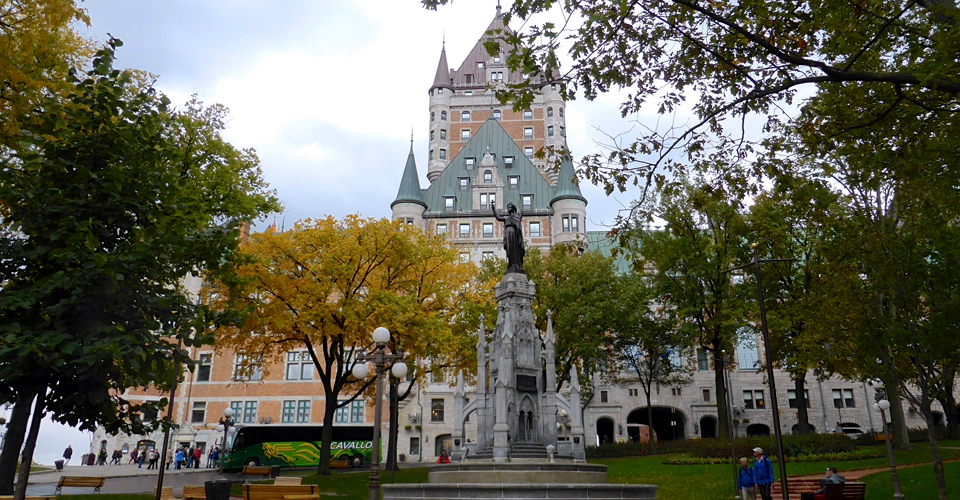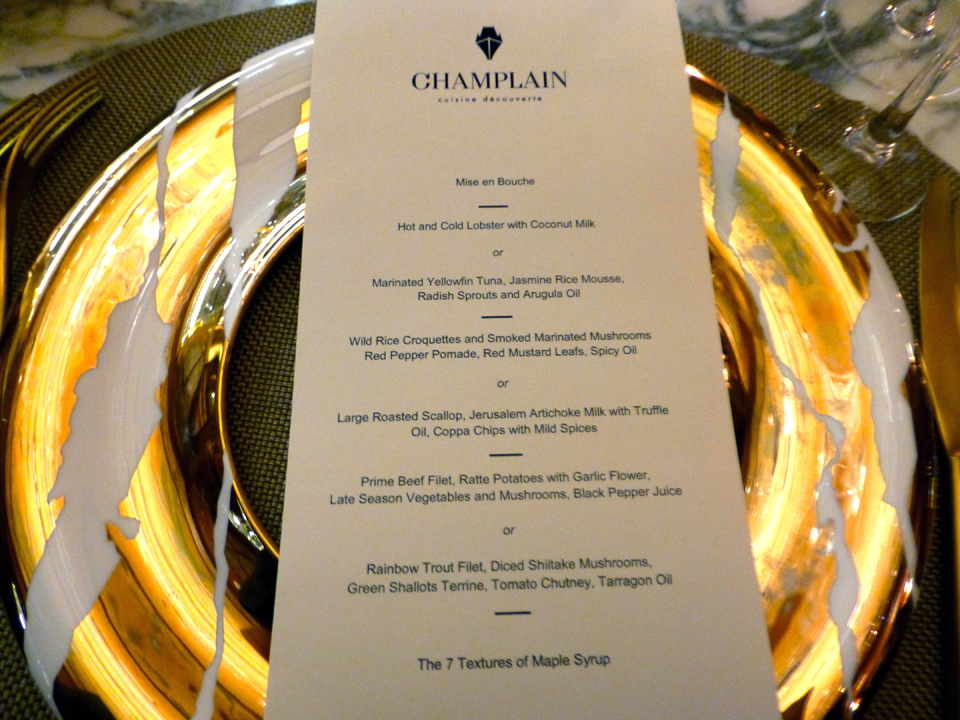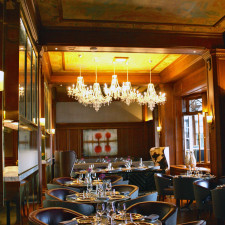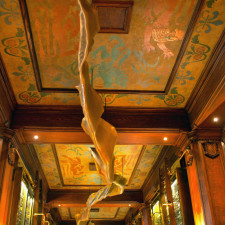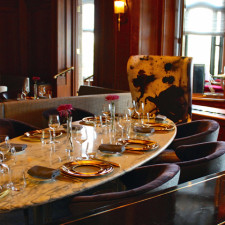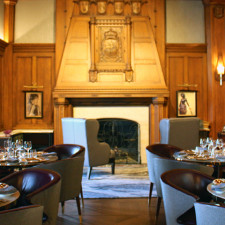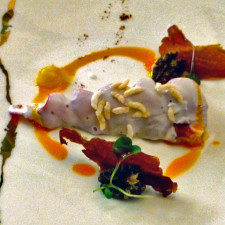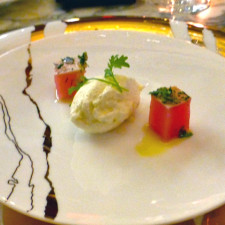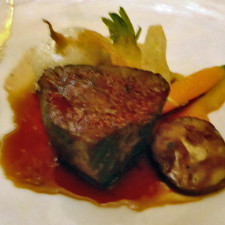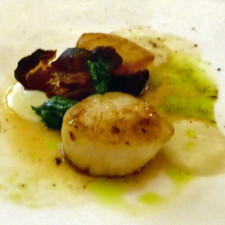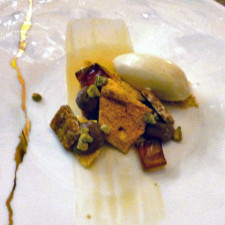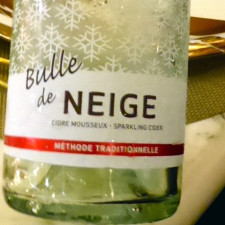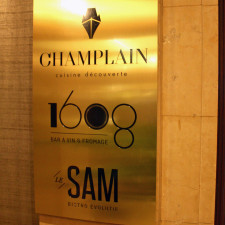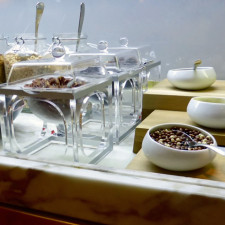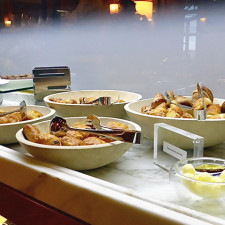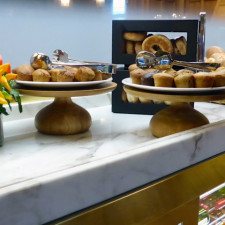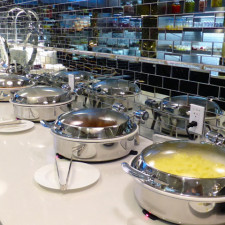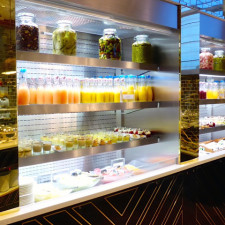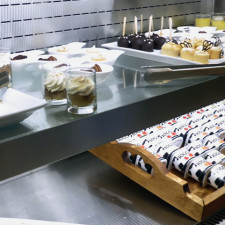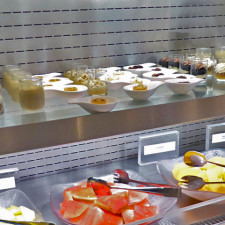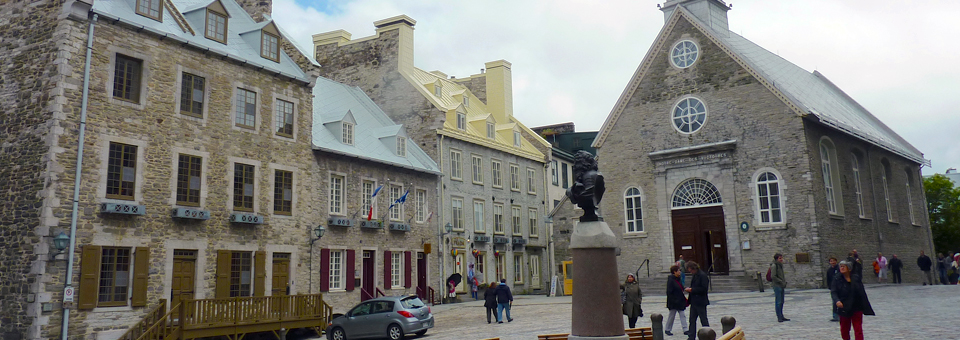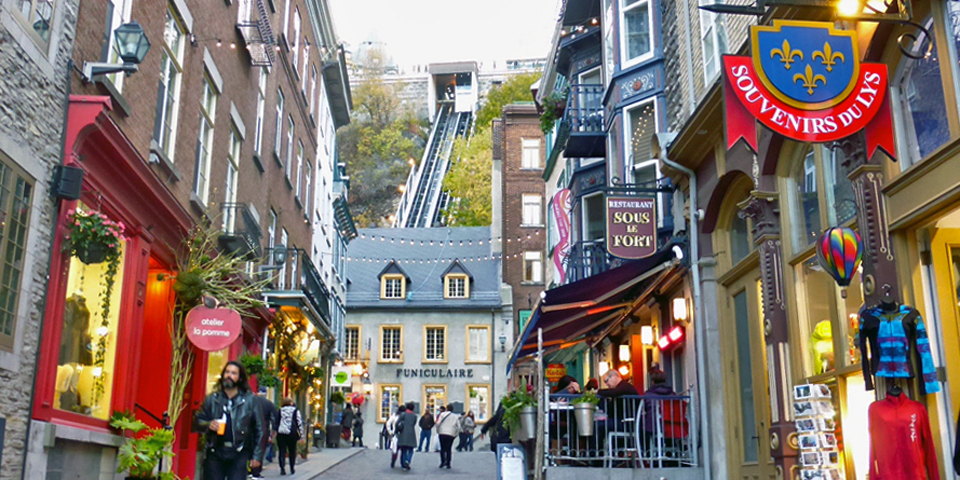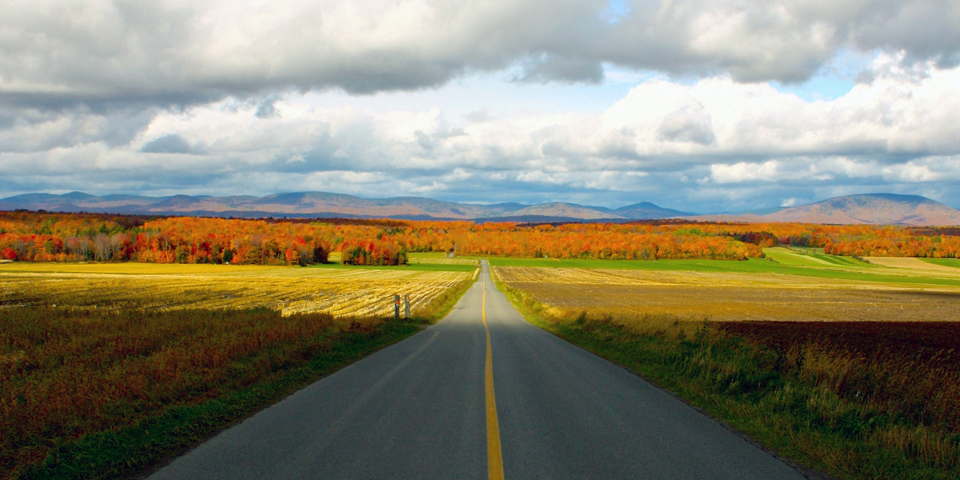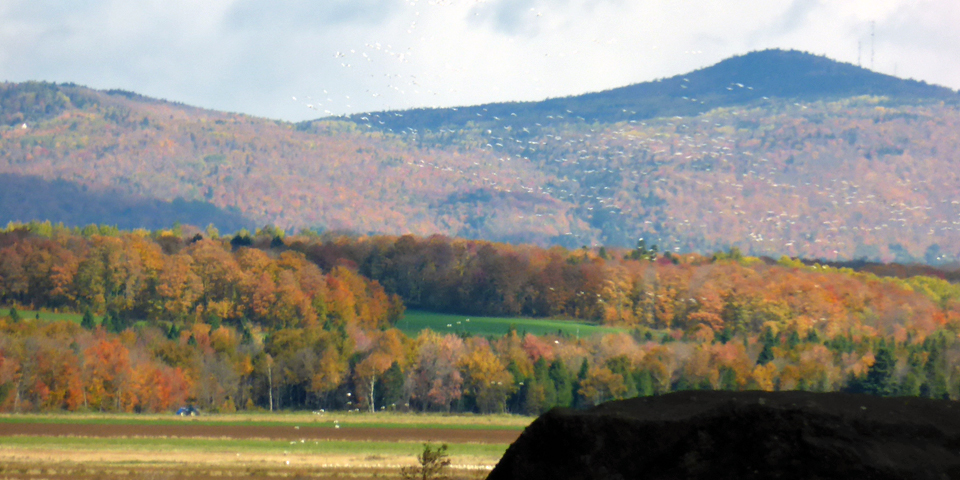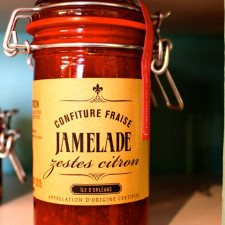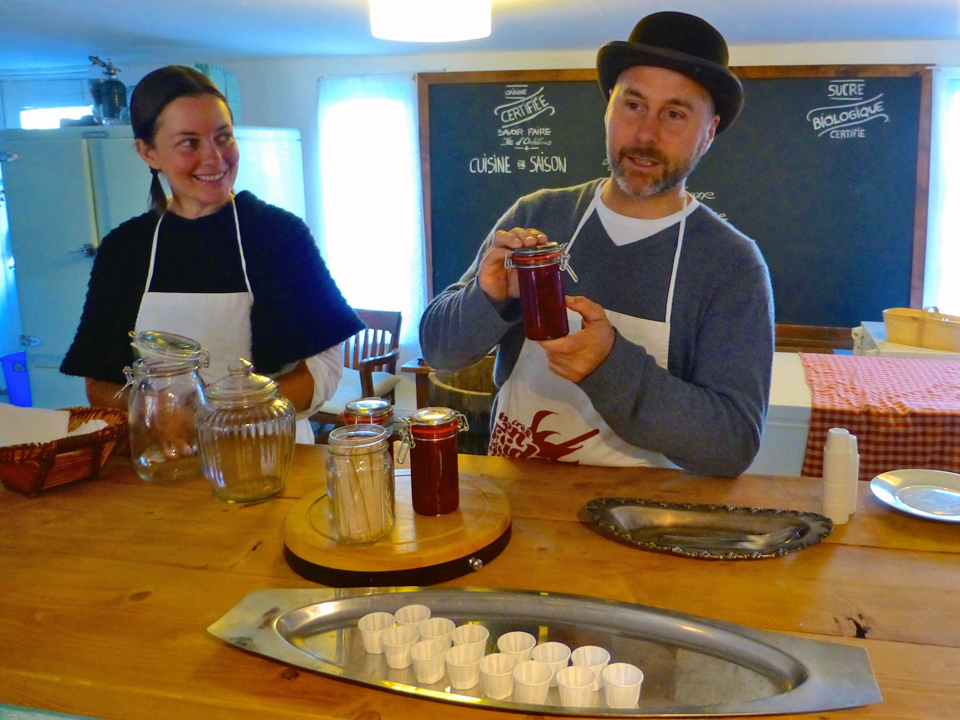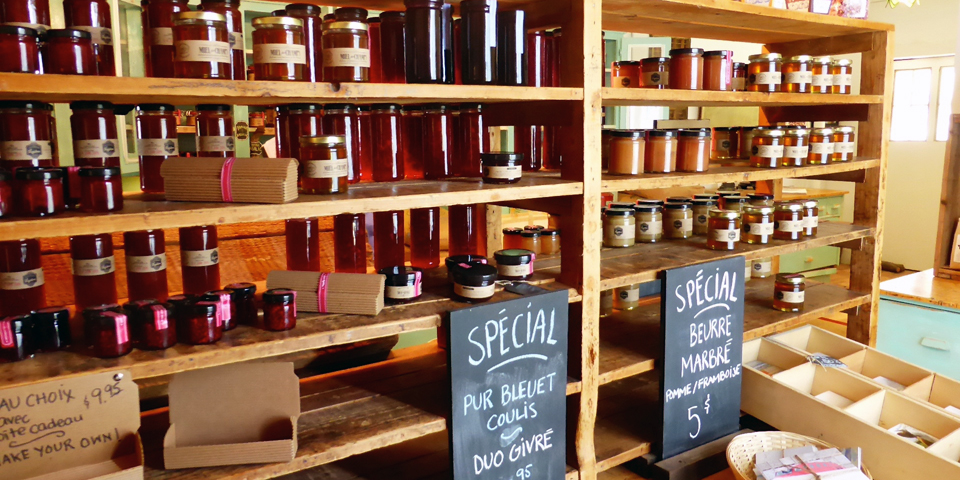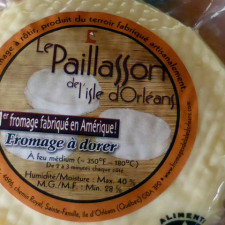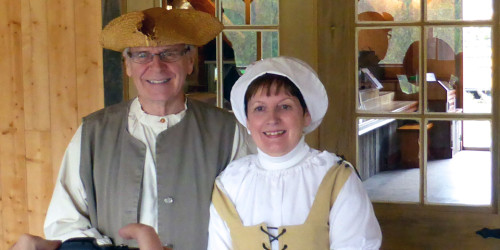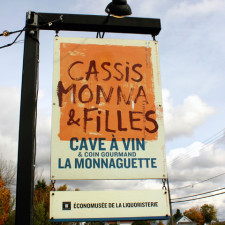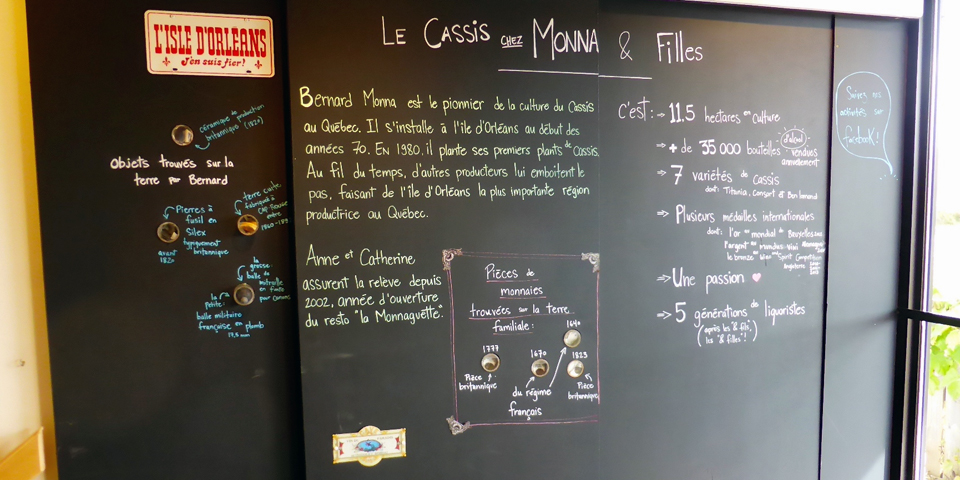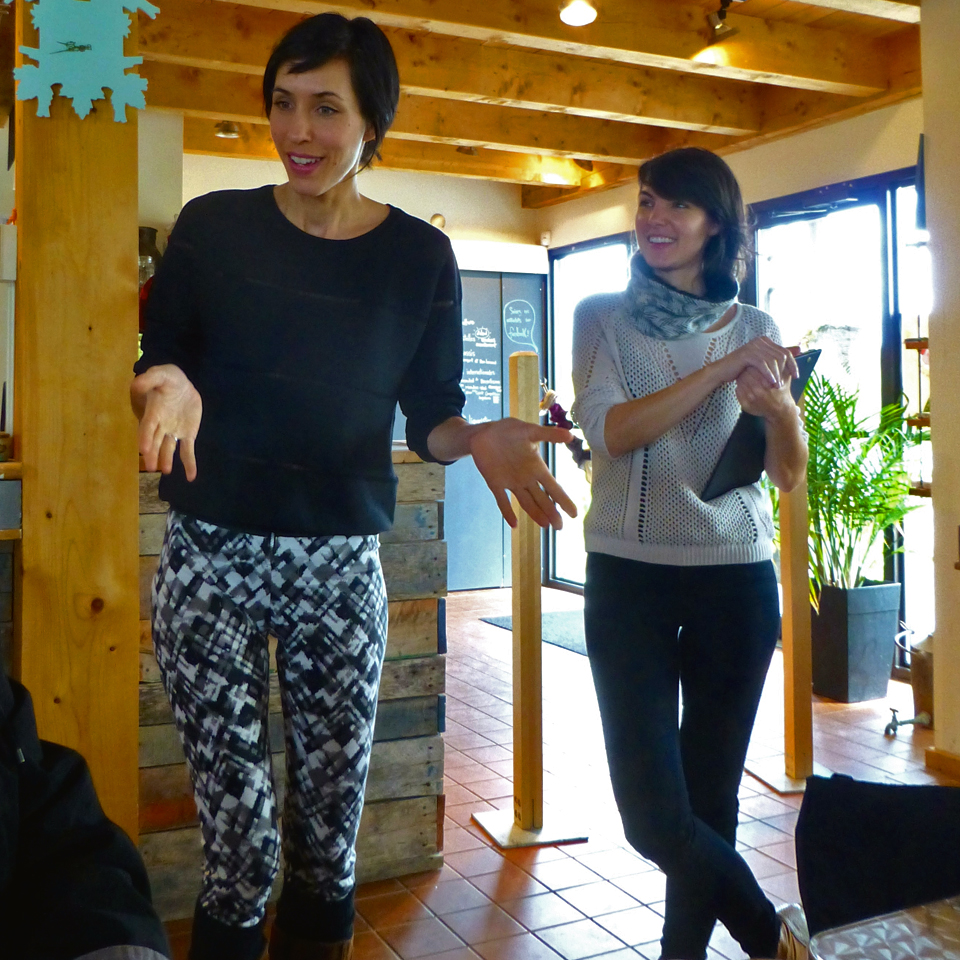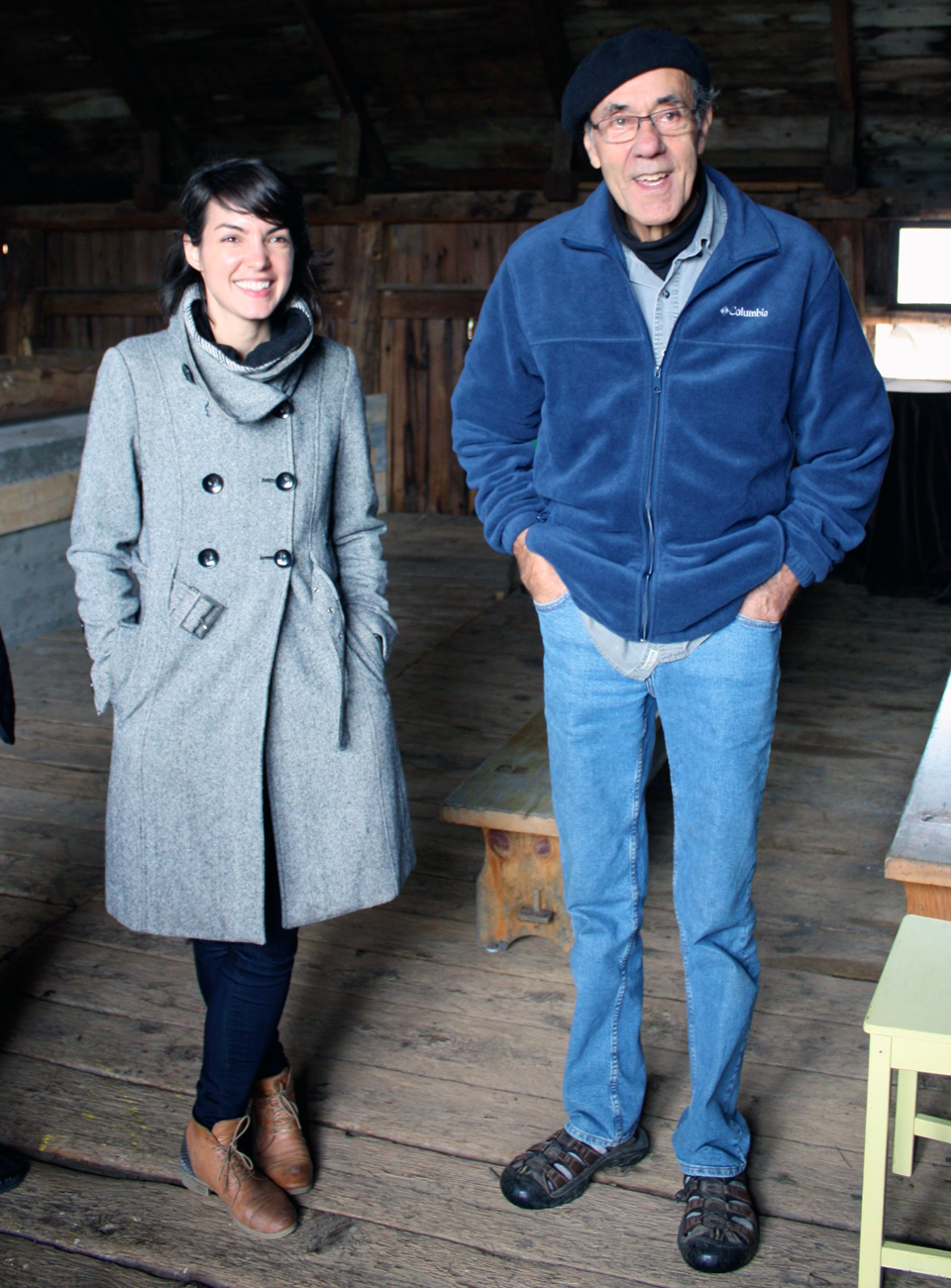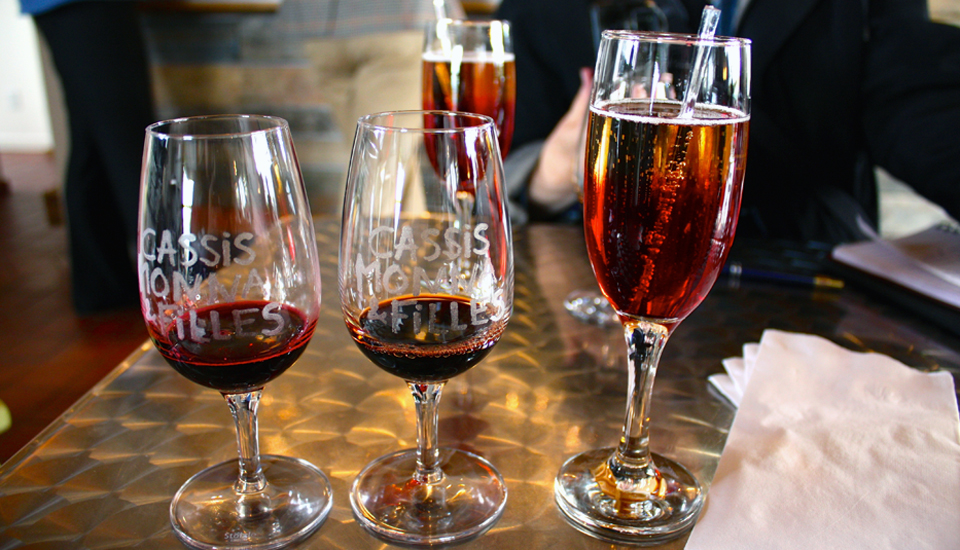The Château Frontenac: the heart of the flavors of Québec City
We still remember looking up at the city’s legendary landmark, the majestic Château Frontenac, during our first visit to Québec City. It loomed high above us within the walls of the only fortified city remaining in North America. It was even more dazzling when illuminated at night. Staying there went on our bucket list, and last fall we booked our stay.
Now part of the Fairmont collection, the Château Frontenac is one of the elegant luxury hotels built by the railway in the late 19th century to ensure luxurious nightly accommodations and dining when traveling by train across Canada. It has been named a United Nations World Heritage Site.
Designed by the father of Emily Post, it is the epitome of refinement and is one of the most photographed and recognized hotels in the world. The Château Frontenac has been expanded many times and recently underwent a multi-million dollar refurbishment.
The coat of arms of the charming 17th century French Count and Governor General of New France for whom it is named is found throughout the hotel. King George VI and Queen Elizabeth, Princess Grace of Monaco, Ronald Reagan, and Alfred Hitchcock were but a few of the distinguished guests.
The Québec Conferences of World War II with United States President Franklin D. Roosevelt, British Prime Minister Winston Churchill and Canadian Prime Minister William Lyon Mackenzie King were held here and at the Citadel.
There are historical displays on the lower level of the hotel, including Amerindian and European objects found beneath Dufferin Terrace, some from the residences of colonial governors. A new app provides a fifteen minute self-guided interactive tour for more of the hotel’s rich history.
display case of European furnishings formerly in the tower of the hotel, Château Frontenac, Québec City, Québec, Canada
There is also a gallery of shops and boutiques well worth a look on the Terrace and Grand Hall level that feature fine fashions, art and quintessentially Canadian specialties and local Québec products.
Our room overlooked the people strolling along Dufferin Terrace past its fortification cannons from when the British and French fought over this territory. A ferry transporting people across the St. Lawrence River, a tour boat hugging the shoreline, and ships traveling from the Great Lakes to the Atlantic Ocean made for an engaging and ever-changing view.
Québec City is the capital of Canada’s French-speaking province of Québec and America’s most European city. English is also spoken. The historical district is a UNESCO World Heritage Site.
Outside the hotel there’s a rhythmic clip-clop of the horse-drawn carriages, calèches, on the cobblestone streets.
A cruise ship was docking and we overheard people planning to take the public ferry across the river just for the view of the Château Frontenac. We looked across to Île d’Orléans, an agricultural region we planned to visit the next day to sample local products.
Tourists posed for photos and street musicians performed at the base of the monument dedicated to Samuel de Champlain, the French navigator and founder of New France. The funicular down to the Lower Town, his original settlement, is conveniently located footsteps away.
view of Samuel de Champlain statue and striped room of funicular from the Champlain dining room of the Fairmont Le Château Frontenac, Québec City
We walked across the street to Le Musée du Fort for the sound and light show that gives an overview of why the French and British empires fought so fiercely over this city.
From there we simply strolled the Upper Town’s streets, walked along the city walls, browsed antique shops and America’s oldest grocery store, and strolled down little alleyways.
We looked inside the grand Parliament building that was inspired by the Louvre.
view of Samuel de Champlain statue from the Champlain dining room of the Fairmont Le Château Frontenac, Québec City
Wherever we roamed, we were always within sight of a church, convent, statue, seminary, or other symbol of the continuing strength and influence of the Catholic religion that was central to settling the region.
We returned to the hotel in time to dress for a culinary extravaganza — dinner of innovative regional cuisine at the Château Frontenac’s elegant new Le Champlain Restaurant.
The innovative five course feast came with a view of the majestic St. Lawrence and the decor, with wood tones and glittering chandeliers, reverberated, , from the ceiling to the dinnerware, with references to the waves of the mighty river just outside. are seen throughout. contemporary glamor to the Old World charm. It is the sort of experience of exceptional food, wine, service, and setting that turns any evening into an exceptional occasion.
the evening’s menu atop the gilded charger plates with splashed with white symbolizing the mighty St. Lawrence, Champlain dining room, The Fairmont Le Château Frontenac, Québec City
Hot and Cold Lobster with Coconut Milk, at the Champlain dining room, Château Frontenac, Québec City
Prime Beef filet, Ratte Potato with Garlic Flower, Seasonal Vegetables and Mushrooms, Black Pepper Juice, Champlain dining room, Château Frontenac
Large Roasted Scallop, Jerusalem Artichoke Milk with Truffle Oil, Coppa Chips with Mild Spices, Champlain dining room, Château Frontenac
The hotel’s breakfast buffet is a lavish extravaganza of pastries, cereals, fruits and nuts, chocolates and more that runs through the dining room and into a side room with hot dishes like crepes and maple syrup to one side and freshly squeezed juices and temptations like the array of cold treats in little glasses on the other.
The next day we visited the Lower Town, including Place-Royale, where Samuel Champlain founded Québec City in 1608, and the Old Port, site of the public market.
We took the hyperbolized “Breakneck Stairs” down, saving the funicular for the ride back up. Little shops and restaurants popular abound in this area, the oldest retail district in North America.
It is fun to find tidbits of four centuries of history in the fresque des Québécois, an enormous and colorful trompe l’oeil painting on Côte de la Montagne. We like to stop at antique shops and cafés around Rue St. Paul, browse the art galleries, and see the exhibits on the time of the First Nations to the present at the city’s most popular museum, the Museum of Civilization.
All this works up an appetite for Québec City’s renowned cuisine, which ranges from simple poutine or sugar pie to levels that would satisfy the most refined palates. Québec is rich in Amerindian, French and British cultural heritage, all of which are reflected in its food.
Another culinary adventure in the flavors of Québec is across the bridge along the roadways of the agricultural island, Île d’Orléans. Restaurant menus,a n audio guide in French or English, and maps of the tours and circuits are available at the island’s Saint-Pierre-del’Île-d’Orléans tourist information bureau, just over the bridge. Follow the trails to meet the producers, sample their wares, and bring home some souvenirs to enjoy with friends and family.
There are cozy inns and historic manor houses, maple farms and sugar shacks, art galleries and craft shops. Savor sweet confections at the chocolaterie or bakeries, sip cider at the ciderie wine at the vineyard, or fruit liqueur at the source. Sample local cheese, ice cream, maple products, and jams.
Depending on the season, pick your own strawberries, apples, or raspberries. You can fish for trout, with tackle and bait provided. Buy duck meat, pâtes, rillettes, confits, cracklings or poutine with liver pâte. Too much to take with you? Domaine Steinbach will ship your purchases home.
This time, we began with a stop at Confiturerie Tigidou, owned by Catherine Trudel and Vincent Paris, two Île d’Orleans natives who traveled the world, met, and returned. They refer to themselves as native sorcerers, creative foodies, and garden apothecaries.
The couple bought a 200 year old house and named their enterprise for the expression “C’est tiguidou!” , meaning “It’s perfect!”
They began making unique jams exclusively from island berries, adding organic sugar, their garden herbs and spices from northern Québec. and started “spreading the love, one jar at a time”. They also cater small events and offer lodging on the second floor.
We were off to sample the first kind of cheese made in North America, at Les Fromages de l’isle d’Orléans. The cheese is eaten hot, right from the frying pan where it is cooked for 2-3 minutes on each side.
Co-proprietors Jocelyn Labbé, a retired teacher with a passion for history, and Diane Marcoux were in traditional costume inside a boutique packed with local food specialties.
The secret to replicating the original cheese recipe for their Le Paillasson de l’isle d’Orléans, which translates “the mat of the Island of Orleans” , they said, is in the microorganisms in the drying mat made of island reeds.
Our final stop was Cassis Monna & Filles. It is an économusée, a concept originating in Quebec to keep the cultural heritage alive through authentic local crafts and foods.
Interpretation centers provide information on the history and production processes of the product sold.
Bernard Monna, originally from Southern France, is from a family that has been creating liqueurs for four generations. He and his two daughters, Catherine and Anne were the first in Québec to grow blackcurrants, a berry long known for its medicinal qualities.
Their boutique is filled with an array of high-quailty products made from the berry, like The Capiteux, a Madeiran wine, and their award-winning crème de cassis, a ruby red fruit liqueur topped with white wine to make the French cocktail known as Kir or champagne for Kir Royale.
There are free tastings in the wine cellar. Specialties like chicken liver mousse with Capiteux and chocolat de Mathieu à la crème de cassis may be enjoyed at the gourmet snack bar and terrace. The boutique features an array of black currant delicacies, including mustards, wine jelly, onion jam and syrups, and vinaigrette.
There are many things to experience in and around “La Vieille Capitale” (The Old Capital) that bring the province’s official motto, “Je me souviens” (“I remember”) to life. Stop to savor its many flavors. It’s an experience you will never forget.

